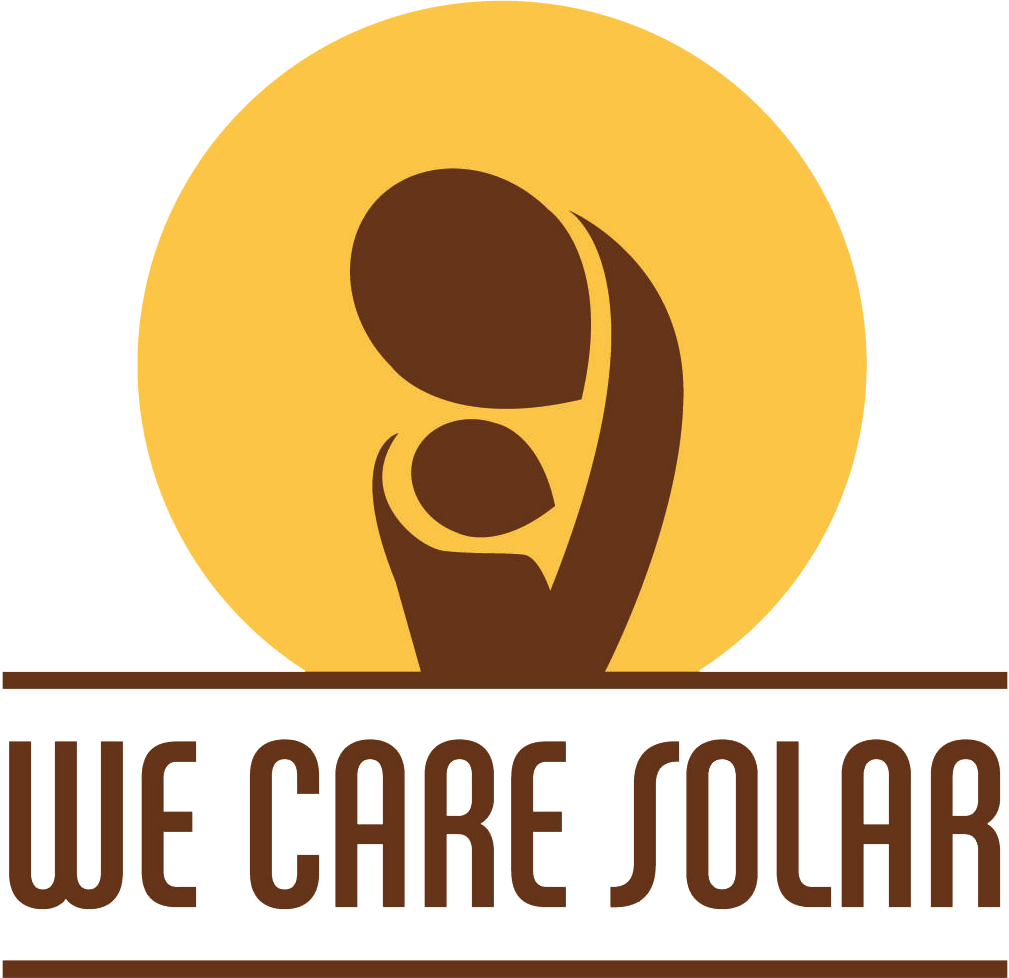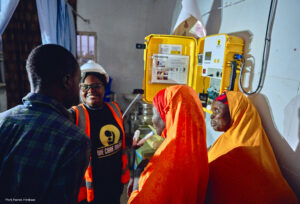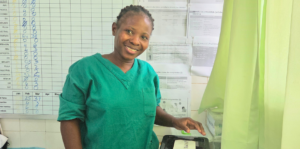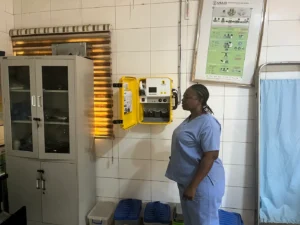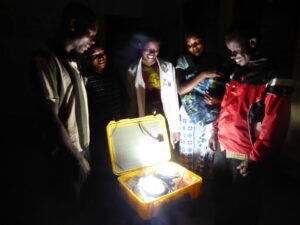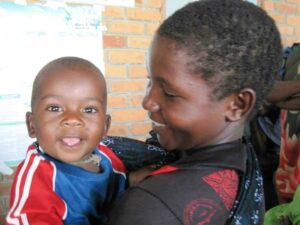This article is by Beth Eanelli, a former Peace Corps volunteer. She was a community health volunteer in The Gambia for 2 1/2 years, working with mothers and traditional birth attendants. As part of her graduate studies at Duke University, she returned to The Gambia this summer to study the impact of the We Care Solar Suitcase on maternal health care.
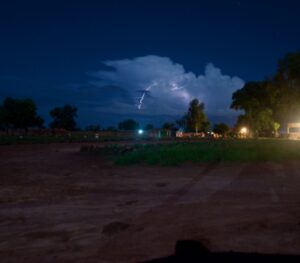 I don’t think I will ever forget the first night delivery I witnessed under the light of the Solar Suitcase. I had been traveling throughout The Gambia for more than a month conducting daytime interviews with health workers who used the suitcase. The potential impact of the suitcase was apparent even in broad daylight, and its light was used to assist in some labor cases and with suturing. Its true impact was revealed on a stormy night, at a clinic 12 miles off the main highway, deep in the bush. The clinic was on the main power grid but in this region, the power switches off at 3 AM every morning, leaving labor cases in darkness before sunrise. When it storms in The Gambia, electricity always cuts out as well, leaving many clinics on the main grid without reliable sources of light.
I don’t think I will ever forget the first night delivery I witnessed under the light of the Solar Suitcase. I had been traveling throughout The Gambia for more than a month conducting daytime interviews with health workers who used the suitcase. The potential impact of the suitcase was apparent even in broad daylight, and its light was used to assist in some labor cases and with suturing. Its true impact was revealed on a stormy night, at a clinic 12 miles off the main highway, deep in the bush. The clinic was on the main power grid but in this region, the power switches off at 3 AM every morning, leaving labor cases in darkness before sunrise. When it storms in The Gambia, electricity always cuts out as well, leaving many clinics on the main grid without reliable sources of light.
I arrived at this particular village in the early afternoon and spent the day getting to know health workers at the clinic. Every clinic I visited this summer welcomed me with immense hospitality and the staff was always excited to share their work. I shadowed nurses and midwives during the day and greeted patients. We enjoyed a late afternoon lunch of bennachin (fried rice with fish and vegetables) which we shared from a large bowl. When the sun set on one side of the clinic, storm clouds gathered on the other and flashes of lightening announced its intensity. As the clouds continued to darken, a pregnant woman arrived on the back of motorcycle accompanied by two traditional birth attendants. Traditional birth attendants (TBAs) are community members who have learned the art of delivering babies from their mothers and grandmothers. They conduct home births, especially in more remote villages where reaching a clinic is more challenging. There has been a push in The Gambia and other countries in recent years to encourage all mothers to deliver in skilled health facilities rather than at home. TBAs have now become birth companions, working in tandem with midwives and nurses to support women from their own communities.
This particular woman was in labor with her eighth child. I greeted her as she was admitted to the clinic and chatted as she breathed through her contractions. As labor progressed, she changed positions, moving from lying in bed to walking. Throughout the process, the TBAs rubbed her back and attended to her needs. She declined food, asked for water, and moaned quietly as contractions intensified. Though out the night, the midwife on duty continued to check her between her other duties, leaving the TBAs as the main support personnel. The woman’s husband came to the clinic on several occasions, at one point bringing food for the birth attendants and myself. We shared a meal just before midnight, as the storm arrived and power cut off.
For a moment, the room was plunged into complete darkness. Then the TBAs turned on the Solar Suitcase, flooding the room with bright light. Soon the woman moved into the delivery room and positioned herself on the birthing table. In a few pushes, with the support of the TBAs on either side of her and the midwife attending to the birth itself, a shiny wriggling baby girl was brought into the world. She let out a lusty cry before a health worker cut her cord and then cleaned and weighed her on the nearby scale.
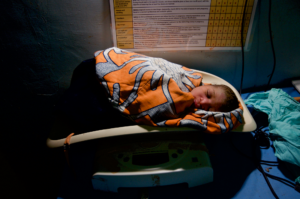 The only lights in the clinic that night were from the Solar Suitcase. One lit the birth, another was aimed at the newborn examination table, a third brightened the post-natal ward, and another illuminated a second adjacent delivery room. Without the suitcase, flashlights would have been the only aid.
The only lights in the clinic that night were from the Solar Suitcase. One lit the birth, another was aimed at the newborn examination table, a third brightened the post-natal ward, and another illuminated a second adjacent delivery room. Without the suitcase, flashlights would have been the only aid.
It was a privilege to be present for this birth. It was beautiful to see a team of incredible women working together to bring new life into this world, safely — a powerful convergence of innovation and traditional practice.
